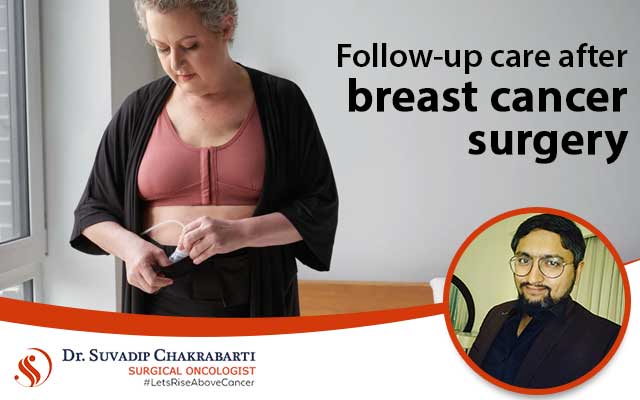Many women feel concerned about the recurrence after undergoing breast cancer surgery. However, for some women with advanced breast cancer, the disease may never totally disappear. These women may continue to get therapies to help manage their breast cancer and relieve symptoms. Learning to live with advanced breast cancer that does not go away can be stressful and unsettling.
Follow-up care schedule post-breast cancer surgery
Many factors determine your follow-up schedule, including the type of breast cancer, how advanced it was when discovered (the stage of the disease), and the treatment procedure. Here are some valuable tips from a breast cancer surgeon in Kolkata.
Visits to the doctor:
If you have completed treatment, your initial follow-up appointments with a breast cancer doctor will most likely be every few months. The longer you have been cancer-free, the fewer appointments you will require. After five years, they are usually done once every year.
Mammograms:
If you have breast-conserving surgery (lumpectomy or partial mastectomy), you will most likely have a mammography 6 to 12 months following surgery and radiation at least once a year. A woman who has had a mastectomy (removal of the whole breast) usually does not require mammograms. However, unless both breasts have been removed, you must get annual mammograms on the remaining breast.
Bone density tests:
If you are on a hormone drug for early-stage breast cancer or if your therapy causes menopause, your doctor may want to monitor your bone health and may consider evaluating your bone density.
Other tests:
Other procedures, such as blood tests and imaging tests (such as bone scans, x-rays, or CT or PET scans), are not a usual component of follow-up, but if you have symptoms or physical exam results that indicate cancer has returned, then such tests may be performed.
Even after you have completed breast cancer surgery, your doctor will keep a close eye on you. Hence, you must attend all your follow-up appointments. Your doctor will ask you if you are suffering from any problems and will examine you during these sessions. Most early-stage breast cancers do not require lab or imaging testing following therapy. However, they may be performed in certain women who are experiencing symptoms to determine the recurrence of breast cancer.
These are a few essential follow-up cares recommended after undergoing breast cancer surgery. It will not only help you to recover quickly and effectively but also avoid the risk of metastasis or recurrence of breast cancer.
Review: “Dr. Suvadip is really a expert oncology surgeon and at the same time he is very attentive in listening the real issues and the problems of the patient. He always makes his best efforts to treatment and make the patient comfortable in all aspects. He is one of the best oncology surgeon in India. I wish him a great future ahead.”

